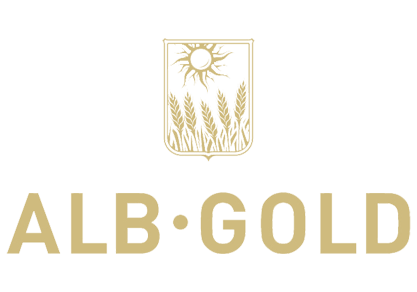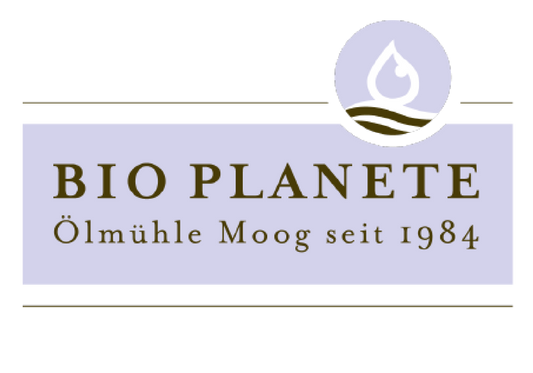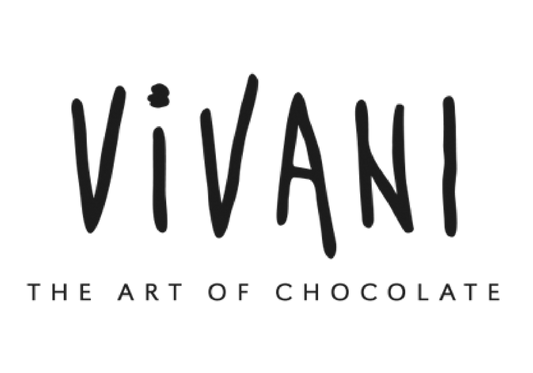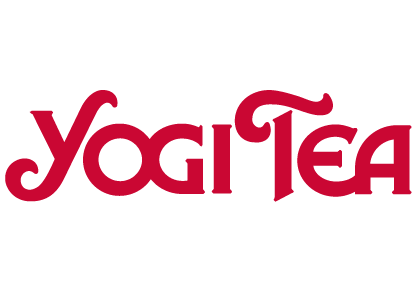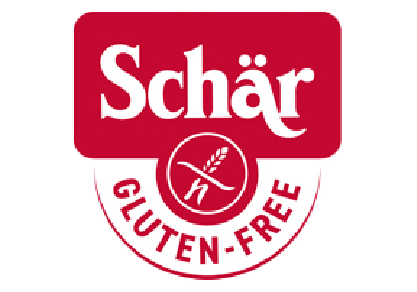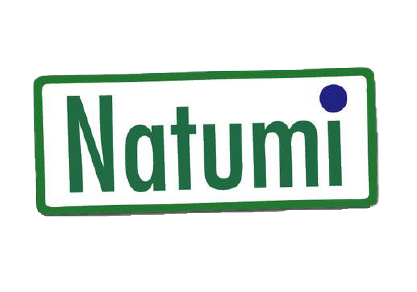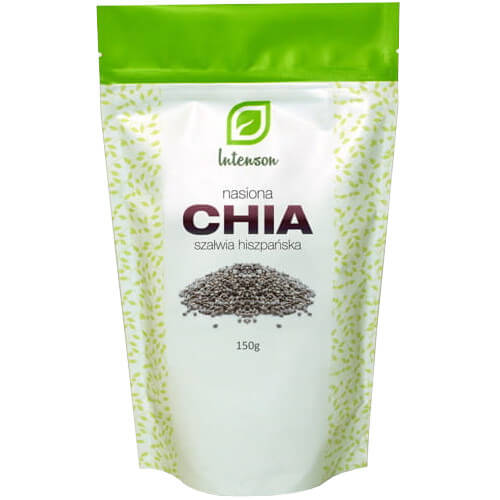
description
xDESCRIPTION
-this is a great source of polyunsaturated acids
-high fiber content - 26 g per 100 g of product
-high protein content
- contain vitamin E, potassium, phosphorus, calcium, zinc, copper and manganese
- easy to prepare and very filling
- the product is lightweight and will be perfect for traveling
Chia seed (Salvia hispanica L), also known as Spanish sage, is a plant that was already cultivated by the Aztecs in pre-Columbian times. Today seeds are widely used in the PREPARATION of nutritious drinks and food. Jesuit chroniclers describe chia as the third most important crop for the Aztecs, after beans and corn. It is grown in the regions of Mexico and Guatemala. The fruit that produces the sage in the crevice contains seeds. They have three kinds of colors, grey, white and black.
Spanish sage seeds are called chia seeds. Sage was one of the main components of the Aztec diet. Now it is very popular among travelers because it is a light, but very nutritious product. It is increasingly becoming an ingredient in healthy desserts, porridge, fruit, cakes and as an ingredient in bread.
Chia seeds contain up to 35% fat, mainly polyunsaturated fats. The fatty acids it contains are alpha-linolenic, palmitic, linoleic and oleic acid. Thanks to them, they have a positive effect on memory and concentration. Another 25% of the composition consists of proteins. They are not gluten proteins, so these seeds can be eaten by people who have had to eliminate gluten from their diet. They contain such amino acids as arginine, glutamic acid and aspartic acid. For this reason, they can positively influence the improvement of immunity. They also contain a high fiber content of about 26 grams per 100 grams of product, which speeds up the metabolism. They also contain tocopherols, i.e. vitamin E, which has an antioxidant effect, i.e. it fights free radicals in our body. As a result, it increases our immunity. The minerals include potassium, phosphorus, calcium, zinc, iron, copper and manganese. Thanks to all these minerals, chia is a great addition to our diet, which affects the replenishment of calcium in the bones, improves the quality of sleep and concentration, and has a beneficial effect on the work of our muscles.
Spanish sage seed can be eaten raw or after infusing it with water, cow's milk, or plant milk. After being doused with liquid, they begin to swell and, after a few hours of rest, form a characteristic pudding. Such a meal provides a quick feeling of satiety that lasts for a long time. However, it is worth controlling the amount consumed during the day, mainly due to the high fiber content, as excess intake decreases the absorption of minerals and can even lead to excessive bowel movements.
INTERESTS
Chia in Nahuatl means "oily".
In 100 grams, it contains more calcium (up to 631 mg) than milk and more omega-3 fatty acids than Atlantic salmon. They are also an ideal alternative to protein supplements for vegetarians and vegans.
PREPARATION of the pudding: Add about 8 tablespoons of water to one tablespoon of chia. Mix the seeds with water (or other liquid) several times during the first 30 minutes to loosen them. After that, let it rest for at least an hour, after which the seeds will spread evenly in the liquid, forming a pudding characteristic of them.
INGREDIENTS
100% chia seeds.
APPLICATION
As an addition to salads, porridge, muesli, boiled groats, potatoes, as a crumble for vegetables. Ground chia seeds can be combined with flour for baking cakes, pancakes, puddings, soups, thickening soups, baking bread. According to the regulation of the European Parliament in January 2013. The use of chia seeds as a food ingredient has been expanded. Daily consumption of seeds should not exceed 15 g. Chia seeds may be used in baked goods up to 10%.
ALLERGY INFORMATION
They contain traces of sodium.
COUNTRY OF ORIGIN
Bolivia, Mexico, Argentina, Peru.
STORAGE
The product should be stored in its tightly closed original packaging. Keep away from extraneous odors and sunlight.
delivery costs
x🚚 Fast and reliable delivery – national and international by land or express air shipping 📦
In our international shipping price lists for land and express air shipping ✅, covering many countries and currencies, you will find:
- Available thresholds for free shipping 🎁
- Estimated delivery times for land and air shipping (Express) 📆
- Shipping costs in EUR, USD, CHF, GBP and many other currencies 💱
- Information about shipping providers such as DHL, UPS, FedEx 🚛
📩 Questions? Write to us: kontakt@biogo.de
* Delivery times and thresholds for free shipping are displayed by default on the product page and in the shopping cart for Germany (land shipping).
* All prices are quoted in the respective local currency and are based on the current exchange rate.
🚚 Shipping price list (land shipping)
| Land | Carrier | Delivery time (tags) |
Free Shipping |
0 – 1 kg | 1 – 3 kg | 3 – 5 kg | 5 – 10 kg | 10 – 20 kg | 20 – 32 kg | 32 and more |
|---|---|---|---|---|---|---|---|---|---|---|
| Austria | DHL | 2–3 | from 99 € | 9.99€ | 10.99€ | 11.99€ | 14.99€ | 17.99€ | 19.99€ | 19.99€ |
| Belgium | DHL | 2 | from 99 € | 10.99€ | 11.99€ | 12.99€ | 15.99€ | 19.99€ | 26.99€ | 26.99€ |
| Bulgaria | DHL/UPS | 5 | from 189 BGN | 19.99 BGN | 23.99 BGN | 23.99 BGN | 27.99 BGN | 43.99 BGN | 53.99 BGN | 53.99 BGN |
| Cyprus | UPS | 10 | from 199 € | 14.99€ | 16.99€ | 16.99€ | 26.99€ | 33.99€ | 39,99€ | 39,99€ |
| Czech Republic | DHL | 2 | from 2469 CZK | 253.99 CZK | 253.99 CZK | 304.99 CZK | 355.99 CZK | 558.99 CZK | 685.99 CZK | 685.99 CZK |
| Germany | DHL | 1-2 | from 99 € | 6,99 € | 6,99 € | 6,99 € | 6,99 € | 6,99 € | 6,99 € | 6,99 € |
| Denmark | DHL | 3–4 | from 739 DKK | 68.99 DKK | 83.99 DKK | 83.99 DKK | 106.99 DKK | 129.99 DKK | 152.99 DKK | 152.99 DKK |
| Estonia | DHL | 4–5 | from 99 € | 6,99 € | 6,99 € | 7,99 € | 9,99 € | 11,99 € | 12,99 € | 12,99 € |
| Spain | DHL/UPS | 3–4 | from 99 € | 12.99€ | 12.99€ | 13.99€ | 19.99€ | 24,99€ | 29.99€ | 29.99€ |
| Finland | DHL | 5 | from 99 € | 11.99€ | 12.99€ | 13.99€ | 16.99€ | 19.99€ | 27.99€ | 27.99€ |
| France | DHL/UPS | 2–3 | from 99 € | 9.99€ | 11.99€ | 11.99€ | 14.99€ | 21.99€ | 26.99€ | 26.99€ |
| United Kingdom | DHL | 4 | from 169 GBP | 14.99 GBP | 16.99 GBP | 16.99 GBP | 17.99 GBP | 34.99 GBP | 42.99 GBP | 42.99 GBP |
| Greece | DHL | 7 | from 99 € | 9.99€ | 12.99€ | 12.99€ | 15.99€ | 23.99€ | 28.99€ | 28.99€ |
| Croatia | DHL | 4–5 | from 99 € | 9.99€ | 11.99€ | 11.99€ | 14.99€ | 23.99€ | 29.99€ | 29.99€ |
| Hungary | DHL | 3–4 | from 39899 HUF | 3286.99 HUF | 4109.99 HUF | 4109.99 HUF | 5343.99 HUF | 5755.99 HUF | 6166.99 HUF | 6166.99 HUF |
| Ireland | DHL/UPS | 4 | from 99 € | 9,99 € | 11,99 € | 11,99 € | 14,99 € | 23,99 € | 29,99 € | 29,99 € |
| Italy | DHL | 3 | from 99 € | 9.99€ | 11.99€ | 11.99€ | 13.99€ | 17.99€ | 19.99€ | 19.99€ |
| Lithuania | DHL | 2–3 | from 69 € | 8.99€ | 10.99€ | 10.99€ | 11.99€ | 12.99€ | 13.99€ | 13.99€ |
| Luxembourg | DHL/UPS | 2–3 | from 99 € | 9.99€ | 11.99€ | 11.99€ | 14.99€ | 22.99€ | 24,99€ | 24,99€ |
| Latvia | DHL | 3–4 | from 69 € | 8.99€ | 10.99€ | 10.99€ | 11.99€ | 12.99€ | 13.99€ | 13.99€ |
| Netherlands | DHL | 2 | from 99 € | 9.99€ | 10.99€ | 10.99€ | 13.99€ | 14.99€ | 19.99€ | 19.99€ |
| Portugal | DHL/UPS | 4–5 | from 99 € | 9.99€ | 11.99€ | 11.99€ | 15.99€ | 22.99€ | 29.99€ | 29.99€ |
| Romania | DHL/UPS | 3–4 | from 499 RON | 46.99 RON | 57.99 RON | 57.99 RON | 72.99 RON | 114.99 RON | 145.99 RON | 145.99 RON |
| Sweden | DHL/UPS | 3–4 | from 89 SEK | 110.99 SEK | 133.99 SEK | 133.99 SEK | 166.99 SEK | 222.99 SEK | 333.99 SEK | 333.99 SEK |
| Slovenia | DHL/UPS | 3–4 | from 99 € | 9.99€ | 11.99€ | 11.99€ | 14.99€ | 24,99€ | 29.99€ | 29.99€ |
| Slovakia | DHL | 2 | from 99 € | 9.99€ | 11.99€ | 11.99€ | 14.99€ | 24,99€ | 29.99€ | 29.99€ |
| Switzerland | FEDEX | 3 | from 189 CHF | 21.99 CHF | 23.99 CHF | 23.99 CHF | 31.99 CHF | 36.99 CHF | 38.99 CHF | 38.99 CHF |
| Norway | FEDEX | 4 | from 2299 NOK | 68.99 NOK | 83.99 NOK | 83.99 NOK | 106.99 NOK | 129.99 NOK | 152.99 NOK | 152.99 NOK |
✈️ Express shipping price list (air freight)
| Land | Carrier | Delivery time (days) |
0–1 kg | 1–3 kg | 3–5 kg | 5–10 kg | 10–20 kg | 20–30 kg | 30–40 kg | 40–60 kg | 60–70 kg |
|---|---|---|---|---|---|---|---|---|---|---|---|
| Albania | FEDEX | 5–7 | 12.99 € | 13.99 € | 19.99 € | 24.99 € | 87.99 € | 166.99 € | 193.99 € | 253.99 € | 316.99 € |
| Algeria | FEDEX | 1 | 25.99 € | 25.99 € | 31.99 € | 37.99 € | 84.99 € | 148.99 € | 171.99 € | 253.99 € | 324.99 € |
| American Samoa | FEDEX | 3 | 42.99 € | 69.99 € | 93.99 € | 131.99 € | 398.99 € | 501.99 € | 591.99 € | 777.99 € | 1008.99 € |
| Andorra | FEDEX | 5–7 | 10.99 € | 10.99 € | 14.99 € | 20.99 € | 53.99 € | 138.99 € | 163.99 € | 215.99 € | 275.99 € |
| Afghanistan | FEDEX | 5–7 | 42.99 € | 69.99 € | 93.99 € | 131.99 € | 398.99 € | 501.99 € | 591.99 € | 777.99 € | 1008.99 € |
| Angola | FEDEX | 1 | 26.99 € | 26.99 € | 33.99 € | 40.99 € | 91.99 € | 181.99 € | 217.99 € | 349.99 € | 454.99 € |
| Anguilla | FEDEX | 5–7 | 26.99 € | 26.99 € | 33.99 € | 40.99 € | 91.99 € | 181.99 € | 217.99 € | 349.99 € | 454.99 € |
| Antigua/ Barbuda | FEDEX | 5–7 | 26.99 € | 26.99 € | 33.99 € | 40.99 € | 91.99 € | 181.99 € | 217.99 € | 349.99 € | 454.99 € |
| Argentina | FEDEX | 5–7 | 25.99 € | 25.99 € | 31.99 € | 37.99 € | 84.99 € | 148.99 € | 171.99 € | 253.99 € | 324.99 € |
| Armenia | FEDEX | 5–7 | 23.99 € | 23.99 € | 27.99 € | 31.99 € | 82.99 € | 144.99 € | 165.99 € | 241.99 € | 298.99 € |
| Aruba | FEDEX | 5–7 | 25.99 € | 25.99 € | 31.99 € | 37.99 € | 84.99 € | 148.99 € | 171.99 € | 253.99 € | 324.99 € |
| Australia | FEDEX | 5–7 | 68.99 AUD | 109.99 AUD | 146.99 AUD | 210.99 AUD | 414.99 AUD | 601.99 AUD | 695.99 AUD | 1048.99 AUD | 1281.99 AUD |
| Austria | FEDEX | 2 | 9,99 € | 10,99 € | 13,99 € | 19,99 € | 51,99 € | 131,99 € | 147,99 € | 201,99 € | 241,99 € |
| Azerbaijan | FEDEX | 1 | 23.99 € | 23.99 € | 27.99 € | 31.99 € | 82.99 € | 144.99 € | 165.99 € | 241.99 € | 298.99 € |
| Bahamas | FEDEX | 5–7 | 25.99 € | 25.99 € | 31.99 € | 37.99 € | 84.99 € | 148.99 € | 171.99 € | 253.99 € | 324.99 € |
| Bangladesh | FEDEX | 5–7 | 23.99 € | 23.99 € | 27.99 € | 31.99 € | 82.99 € | 144.99 € | 165.99 € | 241.99 € | 298.99 € |
| Barbados | FEDEX | 3 | 25.99 € | 25.99 € | 31.99 € | 37.99 € | 84.99 € | 148.99 € | 171.99 € | 253.99 € | 324.99 € |
| Belgium | FEDEX | 1 | 9.99 € | 10.99 € | 13.99 € | 19.99 € | 51.99 € | 131.99 € | 147.99 € | 201.99 € | 241.99 € |
| Belize | FEDEX | 1 | 25.99 € | 25.99 € | 31.99 € | 37.99 € | 84.99 € | 148.99 € | 171.99 € | 253.99 € | 324.99 € |
| Bermuda | FEDEX | 5–7 | 25.99 € | 25.99 € | 31.99 € | 37.99 € | 84.99 € | 148.99 € | 171.99 € | 253.99 € | 324.99 € |
| Bhutan | FEDEX | 5–7 | 23.99 € | 23.99 € | 27.99 € | 31.99 € | 82.99 € | 144.99 € | 165.99 € | 241.99 € | 298.99 € |
| Bolivia | FEDEX | 5–7 | 25.99 € | 25.99 € | 31.99 € | 37.99 € | 84.99 € | 148.99 € | 171.99 € | 253.99 € | 324.99 € |
| BES Islands | FEDEX | 4 | 25.99 € | 25.99 € | 31.99 € | 37.99 € | 84.99 € | 148.99 € | 171.99 € | 253.99 € | 324.99 € |
| Bosnia and Herzegovina | FEDEX | 5–7 | 12.99 € | 13.99 € | 19.99 € | 24.99 € | 87.99 € | 166.99 € | 193.99 € | 253.99 € | 316.99 € |
| Botswana | FEDEX | 5–7 | 26.99 € | 26.99 € | 33.99 € | 40.99 € | 91.99 € | 181.99 € | 217.99 € | 349.99 € | 454.99 € |
| Brazil | FEDEX | 5–7 | 25.99 € | 25.99 € | 31.99 € | 37.99 € | 84.99 € | 148.99 € | 171.99 € | 253.99 € | 324.99 € |
| British Virgin Islands | FEDEX | 5–7 | 25.99 € | 25.99 € | 31.99 € | 37.99 € | 84.99 € | 148.99 € | 171.99 € | 253.99 € | 324.99 € |
| Brunei | FEDEX | 5–7 | 23.99 € | 23.99 € | 27.99 € | 31.99 € | 82.99 € | 144.99 € | 165.99 € | 241.99 € | 298.99 € |
| Bulgaria | FEDEX | 5–7 | 21.99 BGN | 21.99 BGN | 29.99 BGN | 41.99 BGN | 106.99 BGN | 275.99 BGN | 324.99 BGN | 427.99 BGN | 546.99 BGN |
| Burkina Faso | FEDEX | 1 | 26.99 € | 26.99 € | 33.99 € | 40.99 € | 91.99 € | 181.99 € | 217.99 € | 349.99 € | 454.99 € |
| Burundi | FEDEX | 5–7 | 26.99 € | 26.99 € | 33.99 € | 40.99 € | 91.99 € | 181.99 € | 217.99 € | 349.99 € | 454.99 € |
| Cambodia | FEDEX | 5–7 | 23.99 € | 23.99 € | 27.99 € | 31.99 € | 82.99 € | 144.99 € | 165.99 € | 241.99 € | 298.99 € |
| Cameroon | FEDEX | 5–7 | 26.99 € | 26.99 € | 33.99 € | 40.99 € | 91.99 € | 181.99 € | 217.99 € | 349.99 € | 454.99 € |
| Canada | FEDEX | 5–7 | 38.99 CAD | 38.99 CAD | 44.99 CAD | 84.99 CAD | 138.99 CAD | 216.99 CAD | 265,99 CAD | 359,99 CAD | 504,99 CAD |
| Cape Verde | FEDEX | 2 | 26.99 € | 26.99 € | 33.99 € | 40.99 € | 91.99 € | 181.99 € | 217.99 € | 349.99 € | 454.99 € |
| Cayman Islands | FEDEX | 5–7 | 25.99 € | 25.99 € | 31.99 € | 37.99 € | 84.99 € | 148.99 € | 171.99 € | 253.99 € | 324.99 € |
| Central African Rep | FEDEX | 5–7 | 26.99 € | 26.99 € | 33.99 € | 40.99 € | 91.99 € | 181.99 € | 217.99 € | 349.99 € | 454.99 € |
| Chad | FEDEX | 5–7 | 26.99 € | 26.99 € | 33.99 € | 40.99 € | 91.99 € | 181.99 € | 217.99 € | 349.99 € | 454.99 € |
| Chile | FEDEX | 5–7 | 27947,99 CLP | 27947,99 CLP | 34398,99 CLP | 40850,99 CLP | 91389,99 CLP | 160209,99 CLP | 184941,99 CLP | 273116,99 CLP | 349462,99 CLP |
| China | FEDEX | 4 | 180,99 CNY | 180,99 CNY | 221,99 CNY | 304,99 CNY | 665,99 CNY | 1331,99 CNY | 1562,99 CNY | 2236,99 CNY | 2803,99 CNY |
| Colombia | FEDEX | 2 | 25.99 € | 25.99 € | 31.99 € | 37.99 € | 84.99 € | 148.99 € | 171.99 € | 253.99 € | 324.99 € |
| Congo | FEDEX | 4 | 26.99 € | 26.99 € | 33.99 € | 40.99 € | 91.99 € | 181.99 € | 217.99 € | 349.99 € | 454.99 € |
| Cook Islands | FEDEX | 5–7 | 26.99 € | 26.99 € | 33.99 € | 40.99 € | 91.99 € | 181.99 € | 217.99 € | 349.99 € | 454.99 € |
| Costa Rica | FEDEX | 5–7 | 25.99 € | 25.99 € | 31.99 € | 37.99 € | 84.99 € | 148.99 € | 171.99 € | 253.99 € | 324.99 € |
| Ivory Coast | FEDEX | 5–7 | 26.99 € | 26.99 € | 33.99 € | 40.99 € | 91.99 € | 181.99 € | 217.99 € | 349.99 € | 454.99 € |
| Croatia | FEDEX | 5–7 | 10.99 € | 10.99 € | 14.99 € | 20.99 € | 53.99 € | 138.99 € | 163.99 € | 215.99 € | 275.99 € |
| Curaçao | FEDEX | 1 | 25.99 € | 25.99 € | 31.99 € | 37.99 € | 84.99 € | 148.99 € | 171.99 € | 253.99 € | 324.99 € |
| Cyprus | FEDEX | 5–7 | 12.99 € | 13.99 € | 19.99 € | 24.99 € | 87.99 € | 166.99 € | 193.99 € | 253.99 € | 316.99 € |
| Czech Republic | FEDEX | 5–7 | 227,99 CZK | 227,99 CZK | 278.99 CZK | 380.99 CZK | 887.99 CZK | 1571.99 CZK | 1774.99 CZK | 2307.99 CZK | 2788.99 CZK |
| Republic of Congo | FEDEX | 1 | 26.99 € | 26.99 € | 33.99 € | 40.99 € | 91.99 € | 181.99 € | 217.99 € | 349.99 € | 454.99 € |
| Denmark | FEDEX | 5–7 | 253.99 DKK | 278.99 DKK | 354.99 DKK | 506.99 DKK | 1318.99 DKK | 3346.99 DKK | 3752.99 DKK | 5121.99 DKK | 6136.99 DKK |
| Djibouti | FEDEX | 1 | 26.99 € | 26.99 € | 33.99 € | 40.99 € | 91.99 € | 181.99 € | 217.99 € | 349.99 € | 454.99 € |
| Dominica | FEDEX | 5–7 | 25.99 € | 25.99 € | 31.99 € | 37.99 € | 84.99 € | 148.99 € | 171.99 € | 253.99 € | 324.99 € |
| Dominican Republic | FEDEX | 5–7 | 25.99 € | 25.99 € | 31.99 € | 37.99 € | 84.99 € | 148.99 € | 171.99 € | 253.99 € | 324.99 € |
| East Timor | FEDEX | 5–7 | 23.99 € | 23.99 € | 27.99 € | 52.99 € | 86.99 € | 135.99 € | 166.99 € | 225.99 € | 316.99 € |
| Ecuador | FEDEX | 5–7 | 25.99 € | 25.99 € | 31.99 € | 37.99 € | 84.99 € | 148.99 € | 171.99 € | 253.99 € | 324.99 € |
| Egypt | FEDEX | 4 | 23.99 € | 23.99 € | 27.99 € | 31.99 € | 82.99 € | 144.99 € | 165.99 € | 241.99 € | 298.99 € |
| El Salvador | FEDEX | 3 | 25.99 € | 25.99 € | 31.99 € | 37.99 € | 84.99 € | 148.99 € | 171.99 € | 253.99 € | 324.99 € |
| Equatorial Guinea | FEDEX | 5–7 | 26.99 € | 26.99 € | 33.99 € | 40.99 € | 91.99 € | 181.99 € | 217.99 € | 349.99 € | 454.99 € |
| Eritrea | FEDEX | 5–7 | 26.99 € | 26.99 € | 33.99 € | 40.99 € | 91.99 € | 181.99 € | 217.99 € | 349.99 € | 454.99 € |
| Estonia | FEDEX | 5–7 | 10.99 € | 10.99 € | 14.99 € | 20.99 € | 53.99 € | 138.99 € | 163.99 € | 215.99 € | 275.99 € |
| Ethiopia | FEDEX | 1 | 26.99 € | 26.99 € | 33.99 € | 40.99 € | 91.99 € | 181.99 € | 217.99 € | 349.99 € | 454.99 € |
| Faroe Islands | FEDEX | 5–7 | 26.99 € | 26.99 € | 33.99 € | 40.99 € | 91.99 € | 181.99 € | 217.99 € | 349.99 € | 454.99 € |
| Fiji | FEDEX | 5–7 | 26.99 € | 26.99 € | 33.99 € | 40.99 € | 91.99 € | 181.99 € | 217.99 € | 349.99 € | 454.99 € |
| Finland | FEDEX | 4 | 9.99 € | 10.99 € | 13.99 € | 19.99 € | 51.99 € | 131.99 € | 147.99 € | 201.99 € | 241.99 € |
| France | FEDEX | 2 | 9.99 € | 10.99 € | 13.99 € | 19.99 € | 51.99 € | 131.99 € | 147.99 € | 201.99 € | 241.99 € |
| Guyana | FEDEX | 1 | 25.99 € | 25.99 € | 31.99 € | 37.99 € | 84.99 € | 148.99 € | 171.99 € | 253.99 € | 324.99 € |
| Polynesia | FEDEX | 5–7 | 26.99 € | 26.99 € | 33.99 € | 40.99 € | 91.99 € | 181.99 € | 217.99 € | 349.99 € | 454.99 € |
| Gabon | FEDEX | 5–7 | 26.99 € | 26.99 € | 33.99 € | 40.99 € | 91.99 € | 181.99 € | 217.99 € | 349.99 € | 454.99 € |
| Gambia | FEDEX | 5–7 | 26.99 € | 26.99 € | 33.99 € | 40.99 € | 91.99 € | 181.99 € | 217.99 € | 349.99 € | 454.99 € |
| Georgia | FEDEX | 5–7 | 23.99 € | 23.99 € | 27.99 € | 31.99 € | 82.99 € | 144.99 € | 165.99 € | 241.99 € | 298.99 € |
| Germany | FEDEX | 5–7 | 8.99 € | 8.99 € | 10.99 € | 14.99 € | 34.99 € | 61.99 € | 69.99 € | 90.99 € | 109.99 € |
| Ghana | FEDEX | 1 | 26.99 € | 26.99 € | 33.99 € | 40.99 € | 91.99 € | 181.99 € | 217.99 € | 349.99 € | 454.99 € |
| Greece | FEDEX | 4 | 9.99 € | 10.99 € | 13.99 € | 19.99 € | 51.99 € | 131.99 € | 147.99 € | 201.99 € | 241.99 € |
| Greenland | FEDEX | 1 | 26.99 € | 26.99 € | 33.99 € | 40.99 € | 91.99 € | 181.99 € | 217.99 € | 349.99 € | 454.99 € |
| Grenada | FEDEX | 5–7 | 25.99 € | 25.99 € | 31.99 € | 37.99 € | 84.99 € | 148.99 € | 171.99 € | 253.99 € | 324.99 € |
| Guadeloupe | FEDEX | 5–7 | 25.99 € | 25.99 € | 31.99 € | 37.99 € | 84.99 € | 148.99 € | 171.99 € | 253.99 € | 324.99 € |
| Guam | FEDEX | 5–7 | 26.99 € | 26.99 € | 33.99 € | 40.99 € | 91.99 € | 181.99 € | 217.99 € | 349.99 € | 454.99 € |
| Guatemala | FEDEX | 5–7 | 25.99 € | 25.99 € | 31.99 € | 37.99 € | 84.99 € | 148.99 € | 171.99 € | 253.99 € | 324.99 € |
| Guinea | FEDEX | 5–7 | 26.99 € | 26.99 € | 33.99 € | 40.99 € | 91.99 € | 181.99 € | 217.99 € | 349.99 € | 454.99 € |
| Guinea-Bissau | FEDEX | 5–7 | 26.99 € | 26.99 € | 33.99 € | 40.99 € | 91.99 € | 181.99 € | 217.99 € | 349.99 € | 454.99 € |
| Guyana | FEDEX | 5–7 | 25.99 € | 25.99 € | 31.99 € | 37.99 € | 84.99 € | 148.99 € | 171.99 € | 253.99 € | 324.99 € |
| Haiti | FEDEX | 5–7 | 25.99 € | 25.99 € | 31.99 € | 37.99 € | 84.99 € | 148.99 € | 171.99 € | 253.99 € | 324.99 € |
| Honduras | FEDEX | 5–7 | 25.99 € | 25.99 € | 31.99 € | 37.99 € | 84.99 € | 148.99 € | 171.99 € | 253.99 € | 324.99 € |
| Hong Kong | FEDEX | 5–7 | 195.99 HKD | 195.99 HKD | 239.99 HKD | 328.99 HKD | 718.99 HKD | 1 436.99 HKD | 1 684.99 HKD | 2 412.99 HKD | 3 024.99 HKD |
| Hungary | FEDEX | 5–7 | 3 687.99 HUF | 3 687.99 HUF | 4 507.99 HUF | 6 147.99 HUF | 14 350.99 HUF | 25 424.99 HUF | 28 705.99 HUF | 37 318.99 HUF | 45 111.99 HUF |
| Iceland | FEDEX | 1 | 12.99 € | 13.99 € | 17.99 € | 23.99 € | 84.99 € | 162.99 € | 191.99 € | 249.99 € | 314.99 € |
| India | FEDEX | 1 | 2 340.99 INR | 2 340.99 INR | 2 730.99 INR | 3 120.99 INR | 8 095.99 INR | 14,143.99 INR | 16,192.99 INR | 23,606.99 INR | 29,166.99 INR |
| Indonesia | FEDEX | 3 | 450,924.99 IDR | 450,924.99 IDR | 526,110.99 IDR | 996,019.99 IDR | 1,635,095.99 IDR | 2,556,117.99 IDR | 3,138,804.99 IDR | 4,247,789.99 IDR | 5,958,258.99 IDR |
| Iraq | FEDEX | 4 | 26.99 € | 26.99 € | 33.99 € | 40.99 € | 91.99 € | 181.99 € | 217.99 € | 349.99 € | 454.99 € |
| Ireland | FEDEX | 5–7 | 9.99 € | 10.99 € | 13.99 € | 19.99 € | 51.99 € | 131.99 € | 147.99 € | 201.99 € | 241.99 € |
| Israel | FEDEX | 1 | 97.99 ILS | 97.99 ILS | 113.99 ILS | 129.99 ILS | 335.99 ILS | 586.99 ILS | 671.99 ILS | 979.99 ILS | 1,209.99 ILS |
| Jamaica | FEDEX | 2 | 25.99 € | 25.99 € | 31.99 € | 37.99 € | 84.99 € | 148.99 € | 171.99 € | 253.99 € | 324.99 € |
| Japan | FEDEX | 5–7 | 3,984.99 JPY | 3,984.99 JPY | 4,648.99 JPY | 5,977.99 JPY | 13,783.99 JPY | 27,402.99 JPY | 31,554.99 JPY | 44,675.99 JPY | 55,305.99 JPY |
| Jordan | FEDEX | 3 | 23.99 € | 23.99 € | 27.99 € | 31.99 € | 82.99 € | 144.99 € | 165.99 € | 241.99 € | 298.99 € |
| Kazakhstan | FEDEX | 2 | 26.99 € | 26.99 € | 33.99 € | 40.99 € | 91.99 € | 181.99 € | 217.99 € | 349.99 € | 454.99 € |
| Kenya | FEDEX | 3 | 26.99 € | 26.99 € | 33.99 € | 40.99 € | 91.99 € | 181.99 € | 217.99 € | 349.99 € | 454.99 € |
| Kiribati | FEDEX | 4 | 26.99 € | 26.99 € | 33.99 € | 40.99 € | 91.99 € | 181.99 € | 217.99 € | 349.99 € | 454.99 € |
| Kuwait | FEDEX | 5–7 | 23.99 € | 23.99 € | 27.99 € | 31.99 € | 82.99 € | 144.99 € | 165.99 € | 241.99 € | 298.99 € |
| Kyrgyzstan | FEDEX | 5–7 | 26.99 € | 26.99 € | 33.99 € | 40.99 € | 91.99 € | 181.99 € | 217.99 € | 349.99 € | 454.99 € |
| Laos | FEDEX | 3 | 23.99 € | 23.99 € | 27.99 € | 52.99 € | 86.99 € | 135.99 € | 166.99 € | 225.99 € | 316.99 € |
| Latvia | FEDEX | 5–7 | 9.99 € | 10.99 € | 13.99 € | 19.99 € | 51.99 € | 131.99 € | 147.99 € | 201.99 € | 241.99 € |
| Lebanon | FEDEX | 1 | 23.99 € | 23.99 € | 27.99 € | 31.99 € | 82.99 € | 144.99 € | 165.99 € | 241.99 € | 298.99 € |
| Lesotho | FEDEX | 2 | 26.99 € | 26.99 € | 33.99 € | 40.99 € | 91.99 € | 181.99 € | 217.99 € | 349.99 € | 454.99 € |
| Liberia | FEDEX | 5–7 | 26.99 € | 26.99 € | 33.99 € | 40.99 € | 91.99 € | 181.99 € | 217.99 € | 349.99 € | 454.99 € |
| Libya | FEDEX | 5–7 | 23.99 € | 23.99 € | 27.99 € | 31.99 € | 82.99 € | 144.99 € | 165.99 € | 241.99 € | 298.99 € |
| Liechtenstein | FEDEX | 3 | 12.99 € | 13.99 € | 17.99 € | 23.99 € | 84.99 € | 162.99 € | 191.99 € | 249.99 € | 314.99 € |
| Lithuania | FEDEX | 5–7 | 8.99 € | 8.99 € | 10.99 € | 14.99 € | 34.99 € | 61.99 € | 69.99 € | 90.99 € | 109.99 € |
| Luxembourg | FEDEX | 1 | 8.99 € | 8.99 € | 10.99 € | 14.99 € | 34.99 € | 61.99 € | 69.99 € | 90.99 € | 109.99 € |
| Macau | FEDEX | 1 | 23.99 € | 23.99 € | 27.99 € | 52.99 € | 86.99 € | 135.99 € | 166.99 € | 225.99 € | 316.99 € |
| Madagascar | FEDEX | 5–7 | 26.99 € | 26.99 € | 33.99 € | 40.99 € | 91.99 € | 181.99 € | 217.99 € | 349.99 € | 454.99 € |
| Malawi | FEDEX | 5–7 | 26.99 € | 26.99 € | 33.99 € | 40.99 € | 91.99 € | 181.99 € | 217.99 € | 349.99 € | 454.99 € |
| Malaysia | FEDEX | 5–7 | 23.99 € | 23.99 € | 27.99 € | 52.99 € | 86.99 € | 135.99 € | 166.99 € | 225.99 € | 316.99 € |
| Maldives | FEDEX | 5–7 | 26.99 € | 26.99 € | 33.99 € | 40.99 € | 91.99 € | 181.99 € | 217.99 € | 349.99 € | 454.99 € |
| Mali | FEDEX | 5–7 | 26.99 € | 26.99 € | 33.99 € | 40.99 € | 91.99 € | 181.99 € | 217.99 € | 349.99 € | 454.99 € |
| Malta | FEDEX | 5–7 | 12.99 € | 13.99 € | 17.99 € | 23.99 € | 84.99 € | 162.99 € | 191.99 € | 249.99 € | 314.99 € |
| Marshall Islands | FEDEX | 1 | 26.99 € | 26.99 € | 33.99 € | 40.99 € | 91.99 € | 181.99 € | 217.99 € | 349.99 € | 454.99 € |
| Martinique | FEDEX | 5–7 | 25.99 € | 25.99 € | 31.99 € | 37.99 € | 84.99 € | 148.99 € | 171.99 € | 253.99 € | 324.99 € |
| Mauritania | FEDEX | 5–7 | 26.99 € | 26.99 € | 33.99 € | 40.99 € | 91.99 € | 181.99 € | 217.99 € | 349.99 € | 454.99 € |
| Mauritius | FEDEX | 5–7 | 26.99 € | 26.99 € | 33.99 € | 40.99 € | 91.99 € | 181.99 € | 217.99 € | 349.99 € | 454.99 € |
| Mexico | FEDEX | 5–7 | 25.99 € | 25.99 € | 31.99 € | 37.99 € | 84.99 € | 148.99 € | 171.99 € | 253.99 € | 324.99 € |
| Micronesia | FEDEX | 4 | 26.99 € | 26.99 € | 33.99 € | 40.99 € | 91.99 € | 181.99 € | 217.99 € | 349.99 € | 454.99 € |
| Monaco | FEDEX | 5–7 | 8.99 € | 8.99 € | 10.99 € | 14.99 € | 34.99 € | 61.99 € | 69.99 € | 90.99 € | 109.99 € |
| Mongolia | FEDEX | 5–7 | 26.99 € | 26.99 € | 33.99 € | 40.99 € | 91.99 € | 181.99 € | 217.99 € | 349.99 € | 454.99 € |
| Montserrat | FEDEX | 5–7 | 25.99 € | 25.99 € | 31.99 € | 37.99 € | 84.99 € | 148.99 € | 171.99 € | 253.99 € | 324.99 € |
| Montenegro | FEDEX | 5–7 | 12.99 € | 13.99 € | 17.99 € | 23.99 € | 84.99 € | 162.99 € | 191.99 € | 249.99 € | 314.99 € |
| Morocco | FEDEX | 5–7 | 23.99 € | 23.99 € | 27.99 € | 31.99 € | 82.99 € | 144.99 € | 165.99 € | 241.99 € | 298.99 € |
| Mozambique | FEDEX | 3 | 26.99 € | 26.99 € | 33.99 € | 40.99 € | 91.99 € | 181.99 € | 217.99 € | 349.99 € | 454.99 € |
| Myanmar | FEDEX | 5–7 | 23.99 € | 23.99 € | 27.99 € | 31.99 € | 82.99 € | 144.99 € | 165.99 € | 241.99 € | 298.99 € |
| Namibia | FEDEX | 5–7 | 26.99 € | 26.99 € | 33.99 € | 40.99 € | 91.99 € | 181.99 € | 217.99 € | 349.99 € | 454.99 € |
| Nauru | FEDEX | 4 | 26.99 € | 26.99 € | 33.99 € | 40.99 € | 91.99 € | 181.99 € | 217.99 € | 349.99 € | 454.99 € |
| Nepal | FEDEX | 5–7 | 23.99 € | 23.99 € | 27.99 € | 31.99 € | 82.99 € | 144.99 € | 165.99 € | 241.99 € | 298.99 € |
| Netherlands | FEDEX | 5–7 | 8.99 € | 8.99 € | 10.99 € | 14.99 € | 34.99 € | 61.99 € | 69.99 € | 90.99 € | 109.99 € |
| New Caledonia | FEDEX | 1 | 26.99 € | 26.99 € | 33.99 € | 40.99 € | 91.99 € | 181.99 € | 217.99 € | 349.99 € | 454.99 € |
| New Zealand | FEDEX | 5–7 | 75.99 NZD | 120.99 NZD | 160.99 NZD | 230.99 NZD | 455.99 NZD | 660.99 NZD | 763.99 NZD | 1,150.99 NZD | 1,406.99 NZD |
| Nicaragua | FEDEX | 4 | 25.99 € | 25.99 € | 31.99 € | 37.99 € | 84.99 € | 148.99 € | 171.99 € | 253.99 € | 324.99 € |
| Niger | FEDEX | 5–7 | 26.99 € | 26.99 € | 33.99 € | 40.99 € | 91.99 € | 181.99 € | 217.99 € | 349.99 € | 454.99 € |
| Nigeria | FEDEX | 5–7 | 49 364.99 NGN | 49 364.99 NGN | 62 167.99 NGN | 74 969.99 NGN | 168 247.99 NGN | 332 855.99 NGN | 398 699.99 NGN | 640 124.99 NGN | 832 167.99 NGN |
| Niue | FEDEX | 4 | 26.99 € | 26.99 € | 33.99 € | 40.99 € | 91.99 € | 181.99 € | 217.99 € | 349.99 € | 454.99 € |
| Northern Mariana Islands | FEDEX | 5–7 | 26.99 € | 26.99 € | 33.99 € | 40.99 € | 91.99 € | 181.99 € | 217.99 € | 349.99 € | 454.99 € |
| Norway | FEDEX | 5–7 | 153.99 NOK | 165.99 NOK | 212.99 NOK | 284.99 NOK | 1 006.99 NOK | 1 929.99 NOK | 2 272.99 NOK | 2 959.99 NOK | 3 729.99 NOK |
| Oman | FEDEX | 2 | 23.99 € | 23.99 € | 27.99 € | 31.99 € | 82.99 € | 144.99 € | 165.99 € | 241.99 € | 298.99 € |
| Pakistan | FEDEX | 5–7 | 23.99 € | 23.99 € | 27.99 € | 31.99 € | 82.99 € | 144.99 € | 165.99 € | 241.99 € | 298.99 € |
| Palau | FEDEX | 3 | 26.99 € | 26.99 € | 33.99 € | 40.99 € | 91.99 € | 181.99 € | 217.99 € | 349.99 € | 454.99 € |
| Palestinian Territories | FEDEX | 5–7 | 23.99 € | 23.99 € | 27.99 € | 31.99 € | 82.99 € | 144.99 € | 165.99 € | 241.99 € | 298.99 € |
| Panama | FEDEX | 5–7 | 25.99 € | 25.99 € | 31.99 € | 37.99 € | 84.99 € | 148.99 € | 171.99 € | 253.99 € | 324.99 € |
| Papua New Guinea | FEDEX | 5–7 | 26.99 € | 26.99 € | 33.99 € | 40.99 € | 91.99 € | 181.99 € | 217.99 € | 349.99 € | 454.99 € |
| Paraguay | FEDEX | 4 | 25.99 € | 25.99 € | 31.99 € | 37.99 € | 84.99 € | 148.99 € | 171.99 € | 253.99 € | 324.99 € |
| Peru | FEDEX | 4 | 108.99 PEN | 108.99 PEN | 133.99 PEN | 158.99 PEN | 354.99 PEN | 622.99 PEN | 718.99 PEN | 1,060.99 PEN | 1,357.99 PEN |
| Philippines | FEDEX | 4 | 23.99 € | 23.99 € | 27.99 € | 52.99 € | 86.99 € | 135.99 € | 166.99 € | 225.99 € | 316.99 € |
| Portugal | FEDEX | 5–7 | 9.99 € | 10.99 € | 13.99 € | 19.99 € | 51.99 € | 131.99 € | 147.99 € | 201.99 € | 241.99 € |
| Puerto Rico | FEDEX | 1 | 25.99 € | 25.99 € | 31.99 € | 37.99 € | 84.99 € | 148.99 € | 171.99 € | 253.99 € | 324.99 € |
| Qatar | FEDEX | 5–7 | 99.99 QAR | 99.99 QAR | 115.99 QAR | 132.99 QAR | 342.99 QAR | 599.99 QAR | 686.99 QAR | 1,000.99 QAR | 1,235.99 QAR |
| Republic of Moldova | FEDEX | 5–7 | 12.99 € | 13.99 € | 17.99 € | 23.99 € | 84.99 € | 162.99 € | 191.99 € | 249.99 € | 314.99 € |
| Réunion | FEDEX | 5–7 | 26.99 € | 26.99 € | 33.99 € | 40.99 € | 91.99 € | 181.99 € | 217.99 € | 349.99 € | 454.99 € |
| Romania | FEDEX | 5–7 | 52.99 RON | 57.99 RON | 72.99 RON | 104.99 RON | 270.99 RON | 687.99 RON | 770.99 RON | 1,052.99 RON | 1,260.99 RON |
| Rwanda | FEDEX | 5–7 | 26.99 € | 26.99 € | 33.99 € | 40.99 € | 91.99 € | 181.99 € | 217.99 € | 349.99 € | 454.99 € |
| St. Lucia | FEDEX | 5–7 | 25.99 € | 25.99 € | 31.99 € | 37.99 € | 84.99 € | 148.99 € | 171.99 € | 253.99 € | 324.99 € |
| Samoa | FEDEX | 5–7 | 26.99 € | 26.99 € | 33.99 € | 40.99 € | 91.99 € | 181.99 € | 217.99 € | 349.99 € | 454.99 € |
| San Marino | FEDEX | 5–7 | 8.99 € | 8.99 € | 10.99 € | 14.99 € | 34.99 € | 61.99 € | 69.99 € | 90.99 € | 109.99 € |
| Saudi Arabia | FEDEX | 5–7 | 102.99 SAR | 102.99 SAR | 119.99 SAR | 136.99 SAR | 353.99 SAR | 617.99 SAR | 707.99 SAR | 1,031.99 SAR | 1,274.99 SAR |
| Senegal | FEDEX | 2 | 26.99 € | 26.99 € | 33.99 € | 40.99 € | 91.99 € | 181.99 € | 217.99 € | 349.99 € | 454.99 € |
| Serbia | FEDEX | 4 | 12.99 € | 13.99 € | 17.99 € | 23.99 € | 84.99 € | 162.99 € | 191.99 € | 249.99 € | 314.99 € |
| Seychelles | FEDEX | 1 | 26.99 € | 26.99 € | 33.99 € | 40.99 € | 91.99 € | 181.99 € | 217.99 € | 349.99 € | 454.99 € |
| Sierra Leone | FEDEX | 5–7 | 26.99 € | 26.99 € | 33.99 € | 40.99 € | 91.99 € | 181.99 € | 217.99 € | 349.99 € | 454.99 € |
| Singapore | FEDEX | 5–7 | 35.99 SGD | 35.99 SGD | 40.99 SGD | 52.99 SGD | 121.99 SGD | 241.99 SGD | 278.99 SGD | 393.99 SGD | 487.99 SGD |
| Slovakia | FEDEX | 5–7 | 8.99 € | 8.99 € | 10.99 € | 14.99 € | 34.99 € | 61.99 € | 69.99 € | 90.99 € | 109.99 € |
| Slovenia | FEDEX | 1 | 9.99 € | 10.99 € | 13.99 € | 19.99 € | 51.99 € | 131.99 € | 147.99 € | 201.99 € | 241.99 € |
| Solomon Islands | FEDEX | 1 | 26.99 € | 26.99 € | 33.99 € | 40.99 € | 91.99 € | 181.99 € | 217.99 € | 349.99 € | 454.99 € |
| Somalia | FEDEX | 5–7 | 26.99 € | 26.99 € | 33.99 € | 40.99 € | 91.99 € | 181.99 € | 217.99 € | 349.99 € | 454.99 € |
| South Africa | FEDEX | 5–7 | 540.99 ZAR | 540.99 ZAR | 665.99 ZAR | 789.99 ZAR | 1,767.99 ZAR | 3,097.99 ZAR | 3,576.99 ZAR | 5,281.99 ZAR | 6,757.99 ZAR |
| South Korea | FEDEX | 3 | 38,088.99 KRW | 38,088.99 KRW | 44,439.99 KRW | 84,131.99 KRW | 138,112.99 KRW | 215,909.99 KRW | 265,127.99 KRW | 358,800.99 KRW | 503,279.99 KRW |
| Spain | FEDEX | 2 | 9.99 € | 10.99 € | 13.99 € | 19.99 € | 51.99 € | 131.99 € | 147.99 € | 201.99 € | 241.99 € |
| Sri Lanka | FEDEX | 1 | 23.99 € | 23.99 € | 27.99 € | 31.99 € | 82.99 € | 144.99 € | 165.99 € | 241.99 € | 298.99 € |
| St. Kitts and Nevis | FEDEX | 3 | 25.99 € | 25.99 € | 31.99 € | 37.99 € | 84.99 € | 148.99 € | 171.99 € | 253.99 € | 324.99 € |
| Sint Maarten | FEDEX | 5–7 | 25.99 € | 25.99 € | 31.99 € | 37.99 € | 84.99 € | 148.99 € | 171.99 € | 253.99 € | 324.99 € |
| Sint Martin | FEDEX | 5–7 | 25.99 € | 25.99 € | 31.99 € | 37.99 € | 84.99 € | 148.99 € | 171.99 € | 253.99 € | 324.99 € |
| St. Vincent/ Grenadines | FEDEX | 5–7 | 25.99 € | 25.99 € | 31.99 € | 37.99 € | 84.99 € | 148.99 € | 171.99 € | 253.99 € | 324.99 € |
| Sudan | FEDEX | 5–7 | 26.99 € | 26.99 € | 33.99 € | 40.99 € | 91.99 € | 181.99 € | 217.99 € | 349.99 € | 454.99 € |
| Suriname | FEDEX | 5–7 | 25.99 € | 25.99 € | 31.99 € | 37.99 € | 84.99 € | 148.99 € | 171.99 € | 253.99 € | 324.99 € |
| Eswatini | FEDEX | 5–7 | 26.99 € | 26.99 € | 33.99 € | 40.99 € | 91.99 € | 181.99 € | 217.99 € | 349.99 € | 454.99 € |
| Sweden | FEDEX | 5–7 | 110.99 SEK | 121.99 SEK | 154.99 SEK | 221.99 SEK | 575.99 SEK | 1,460.99 SEK | 1,637.99 SEK | 2,234.99 SEK | 2,677.99 SEK |
| Switzerland | FEDEX | 1 | 12.99 CHF | 13.99 CHF | 17.99 CHF | 22.99 CHF | 80.99 CHF | 154.99 CHF | 181.99 CHF | 236.99 CHF | 298.99 CHF |
| Syria | FEDEX | 1 | 23.99 € | 23.99 € | 27.99 € | 31.99 € | 82.99 € | 144.99 € | 165.99 € | 241.99 € | 298.99 € |
| Taiwan | FEDEX | 5–7 | 23.99 € | 23.99 € | 27.99 € | 52.99 € | 86.99 € | 135.99 € | 166.99 € | 225.99 € | 316.99 € |
| Thailand | FEDEX | 2 | 23.99 € | 23.99 € | 27.99 € | 52.99 € | 86.99 € | 135.99 € | 166.99 € | 225.99 € | 316.99 € |
| Togo | FEDEX | 3 | 26.99 € | 26.99 € | 33.99 € | 40.99 € | 91.99 € | 181.99 € | 217.99 € | 349.99 € | 454.99 € |
| Tonga | FEDEX | 5–7 | 26.99 € | 26.99 € | 33.99 € | 40.99 € | 91.99 € | 181.99 € | 217.99 € | 349.99 € | 454.99 € |
| Trinidad/ Tobago | FEDEX | 5–7 | 25.99 € | 25.99 € | 31.99 € | 37.99 € | 84.99 € | 148.99 € | 171.99 € | 253.99 € | 324.99 € |
| Tunisia | FEDEX | 5–7 | 23.99 € | 23.99 € | 27.99 € | 31.99 € | 82.99 € | 144.99 € | 165.99 € | 241.99 € | 298.99 € |
| Turkey | FEDEX | 3 | 485.99 TRY | 485.99 TRY | 662.99 TRY | 927.99 TRY | 2,384.99 TRY | 6,139.99 TRY | 7,243.99 TRY | 9,540.99 TRY | 12,190.99 TRY |
| Turkmenistan | FEDEX | 3 | 26.99 € | 26.99 € | 33.99 € | 40.99 € | 91.99 € | 181.99 € | 217.99 € | 349.99 € | 454.99 € |
| Turks/ Caicos Islands | FEDEX | 3 | 25.99 € | 25.99 € | 31.99 € | 37.99 € | 84.99 € | 148.99 € | 171.99 € | 253.99 € | 324.99 € |
| Tuvalu | FEDEX | 5–7 | 26.99 € | 26.99 € | 33.99 € | 40.99 € | 91.99 € | 181.99 € | 217.99 € | 349.99 € | 454.99 € |
| USVI | FEDEX | 5–7 | 25.99 € | 25.99 € | 31.99 € | 37.99 € | 84.99 € | 148.99 € | 171.99 € | 253.99 € | 324.99 € |
| United States | FEDEX | 5–7 | 21.99 € | 21.99 € | 26.99 € | 49.99 € | 86.99 € | 120.99 € | 148.99 € | 225.99 € | 316.99 € |
| Uganda | FEDEX | 5–7 | 26.99 € | 26.99 € | 33.99 € | 40.99 € | 91.99 € | 181.99 € | 217.99 € | 349.99 € | 454.99 € |
| ARE | FEDEX | 5–7 | 100.99 AED | 100.99 AED | 116.99 AED | 133.99 AED | 346.99 AED | 605.99 AED | 693.99 AED | 1,010.99 AED | 1,248.99 AED |
| United Kingdom | FEDEX | 3 | 13.99 GBP | 13.99 GBP | 14.99 GBP | 21.99 GBP | 67.99 GBP | 127.99 GBP | 142.99 GBP | 187.99 GBP | 222.99 GBP |
| Tanzania | FEDEX | 1 | 26.99 € | 26.99 € | 33.99 € | 40.99 € | 91.99 € | 181.99 € | 217.99 € | 349.99 € | 454.99 € |
| Uruguay | FEDEX | 5–7 | 25.99 € | 25.99 € | 31.99 € | 37.99 € | 84.99 € | 148.99 € | 171.99 € | 253.99 € | 324.99 € |
| USA-MAZ | FEDEX | 4 | 25.99 € | 25.99 € | 31.99 € | 37.99 € | 84.99 € | 148.99 € | 171.99 € | 253.99 € | 324.99 € |
| Uzbekistan | FEDEX | 5–7 | 26.99 € | 26.99 € | 33.99 € | 40.99 € | 91.99 € | 181.99 € | 217.99 € | 349.99 € | 454.99 € |
| Vanuatu | FEDEX | 3 | 26.99 € | 26.99 € | 33.99 € | 40.99 € | 91.99 € | 181.99 € | 217.99 € | 349.99 € | 454.99 € |
| Vatican City | FEDEX | 5–7 | 8.99 € | 8.99 € | 10.99 € | 14.99 € | 34.99 € | 61.99 € | 69.99 € | 90.99 € | 109.99 € |
| Venezuela | FEDEX | 5–7 | 25.99 € | 25.99 € | 31.99 € | 37.99 € | 84.99 € | 148.99 € | 171.99 € | 253.99 € | 324.99 € |
| Vietnam | FEDEX | 4 | 709,077.99 VND | 709,077.99 VND | 827,306.99 VND | 1,566,237.99 VND | 2,571,183.99 VND | 4,019,487.99 VND | 4,935,761.99 VND | 6,679,637.99 VND | 9,369,345.99 VND |
| Wallis/Futuna | FEDEX | 3 | 26.99 € | 26.99 € | 33.99 € | 40.99 € | 91.99 € | 181.99 € | 217.99 € | 349.99 € | 454.99 € |
| Yemen | FEDEX | 5–7 | 23.99 € | 23.99 € | 27.99 € | 31.99 € | 82.99 € | 144.99 € | 165.99 € | 241.99 € | 298.99 € |
| Zambia | FEDEX | 5–7 | 26.99 € | 26.99 € | 33.99 € | 40.99 € | 91.99 € | 181.99 € | 217.99 € | 349.99 € | 454.99 € |
| Zimbabwe | FEDEX | 4 | 26.99 € | 26.99 € | 33.99 € | 40.99 € | 91.99 € | 181.99 € | 217.99 € | 349.99 € | 454.99 € |
- Choosing a selection results in a full page refresh.



















































































































